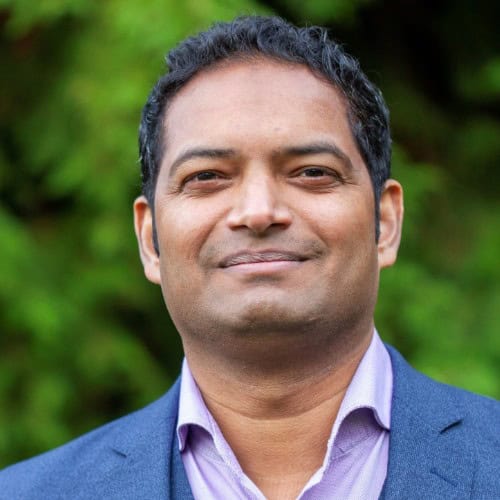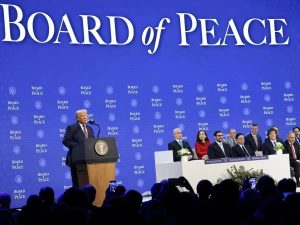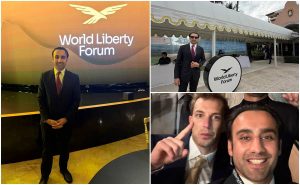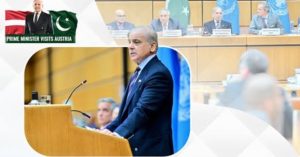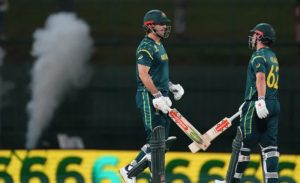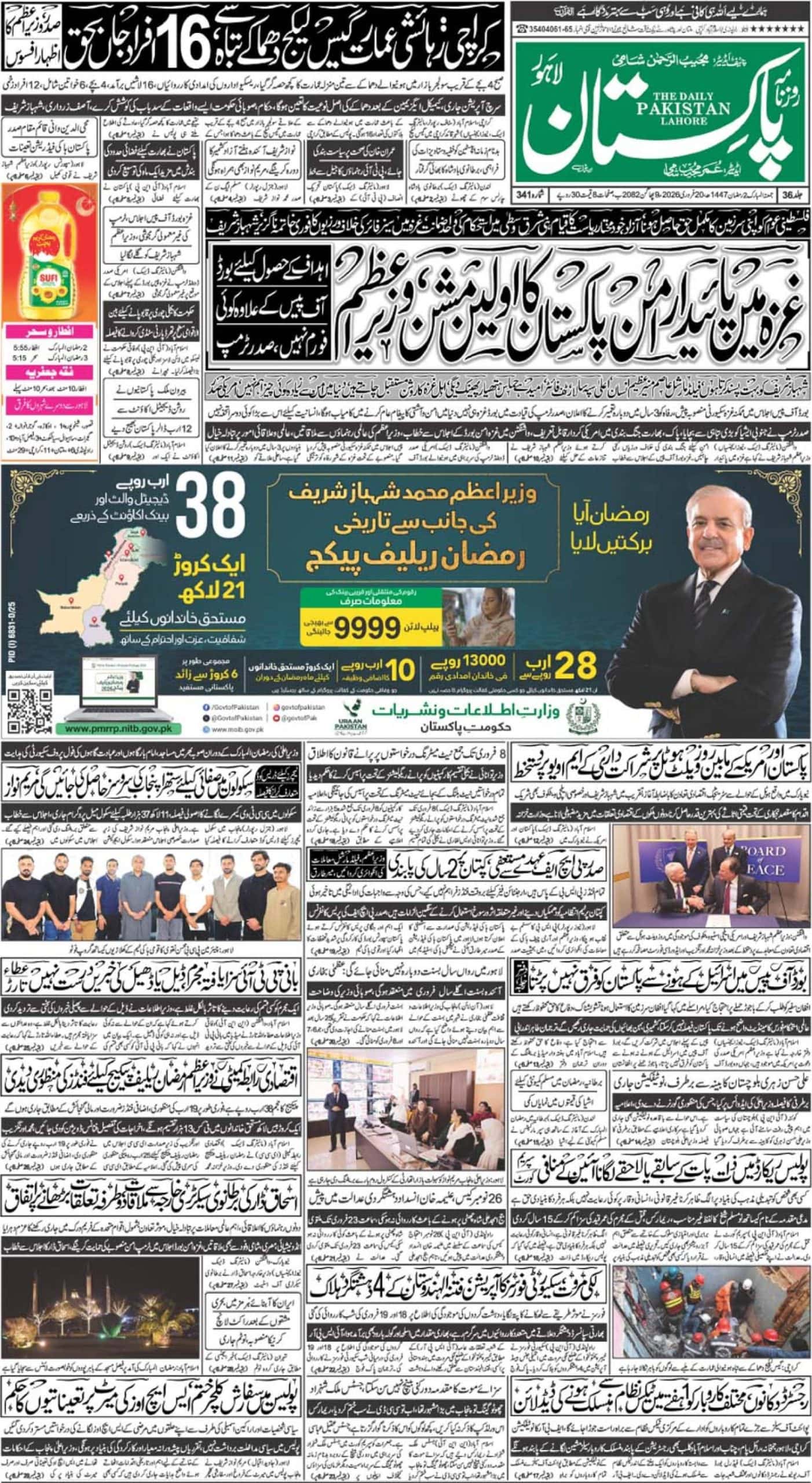By Staff Correspondent
Controversial Canadian-Indian businessman Sri Ram Tumuluri was recently arrested by the Dubai police – as part of a financial corruption investigation – over several bounced cheques. He remains on bail and under investigation in the Middle Eastern state.
The government have said that the investigation is ongoing, and that Tumuluri will be banned from the country if he doesn’t settle his debts.
Following his arrest, this report takes a deeper look into the murky world of Ram Tumuluri’s business dealings across the world. Indian and American media have this week written in detail about a trial of deception and lies which traces its roots to Canada and India.
The journalist’s killing
The report mentions how Celebrated Malta journalist Daphne Caruana Galizia, who was killed in October 2017 in a car bomb near her home within weeks after announcing that she would be exposing several financial scandals of controversial Canadian-Indian businessman Sri Ram Tumuluri, spent several years investigating Ram Tumuluri till her tragic murder.
Although Maltese national brothers George Degiorgio and his brother Alfred have confessed to the killing but close associates of Daphne Caruana Galizia have said the Malta authorities have not investigated the murder properly and several questions remain unanswered.
The murdered journalist had written in detail about the financial crimes of Sri Ram Tumuluri. The journalist, who had also worked on Panama Papers scandal, had written dozens of articles on Sri Rama Tumuluri and was set to release a big story when she was killed. Her assassination rocked Malta.
Corrupt payments to Govt official
Ram Tumuluri was recently thrust again into limelight after evidence emerged that his UK-based Causis Group made several undeclared and corrupt payments in 2015 to Carmen Ciantar, the chief political advisor of Malta’s health minister Chris Fearne.
She resigned from her role after evidence was released that Carmen Ciantar received a total of €443,500 Euros from Gozo International Medicare Ltd – part of the VGH group. The money came from the firm’s account at the Dubai-headquartered Emirates NBD Bank.
Permanent deceptive pattern
In all his operations, Ram Tumuluri has a consistent pattern: he presents investors with deals he does not himself have the funds to invest in; portrays them as easy money opportunities; sets up an opaque offshore corporate structure; pulls in his associates and past business connections; obtains partial funding for the project; walks away from the project with any funds invested, having purposefully failed to file accounts; and moves on to an alternative project.
By maintaining a low level of tangible assets (i.e. renting rather than owning property), even in litigious situations, the plaintiffs are unable to make claims against any significant resources owned in Tumuluri’s name.
Early career
Ram Tumuluri was born in the Indian city of Hyderabad to Satynarayana Tumuluri and Bharti Tumuluri, a Brahmin middle class family with no business history. Ram Tumuluri has claimed he received an undergraduate degree from Osmania University in Culinary Arts. Osmania University said it does not offer culinary courses. The controversial businessman has claimed that he went to the London School of Economics (LSE) but the LSE administration has said it has no record of Ram Tumuluri ever enrolling in any discipline or ever graduating from the prestigious institution. The LSE says it has sent a letter to Ram Tumuluri to stop making false representations.
Indian failures
In India, Ram Tumuluri established the Ayucare brand under his company Holistic Healthcare. The businessman has fostered the impression that his company had taken the country by a storm; in reality one of the main spas was a bungalow in a residential area and the business folded after a few years after making huge losses.
Tumuluri and his wife Sonya, the only two registered officials for the company, never fulfilled any of the mandatory filing requirements of the Canadian companies registry after registering the company. The Canadian authorities then dissolved the company for non-compliance.
United States of America
In the United States, Ram Tumuluri married Phrasavath Douangmala and they divorced in April 2003. His history in the US spans from approximately 1998 until 2004. He resided in Chicago, Illinois. In the divorce records, Tumuluri’s date of birth in the Milwaukee County divorce court documents is recorded as September rather than May 1975. It is unclear whether this was a deliberate attempt to avoid leaving a trail. Corporate registries in the US have Tumuluri as director of a real estate development company struck off in 2014 for not filing annual returns.
Canada bankruptcies and failures
Tumuluri subsequently moved to Canada, where his business practices set the hallmark for a pattern of behaviour repeated throughout his career to date. All his firms were dissolved due to non-filing of company accounts. Litigation records spell out the details of claims such as misuse of company funds and failure to provide accounting information to business partners.
Federal and state documents in Canada record Tumuluri having incorporated seven companies since 2006. Only one remains active; the remaining six were dissolved for failure to file company records.
Investigation in an American publication has revealed that Sri Ram Tumuluri’s partner in the Indian Rs2,800-crore electric buses deal, Thomas-Christan Seitz is known for close ties with the Kremlin and has worked for the interests of Russia’s feared spy agency KGB – now called the Foreign Intelligence Service (SVR).
The Causis scandal
According to a forensic study by the publication, Causis acquired a 100% stake of German-registered Eurabus GmbH in September 2021. Eurabus was founded and formerly owned by Thomas-Christan Seitz. Eurabus has previously claimed to be in the process of opening EV factories in Azerbaijan, Kazakhstan, Georgia and possibly Tanzania.
Causis Group Ltd was incorporated in England and Wales on 11 June 2021 under company number 13452464 and the company is 100% owned by Jersey-incorporated New Horizons Investments Limited, which in turn is 100% owned by Tumuluri, papers show. Causis Group’s statutory Directors are Tumuluri, Peter Knez, Charles Paul Rowan, Thomas-Christian Seitz and Gary Anthony Dugan.
Expose in Indian media
Ram Tumuluri’s latest The Brihanmumbai Electric Supply and Transport (BEST) project is a big scandal. He signed with the Indian govt in October 2021. The project was set to start within two months but to date there is no sign of the project making any headway and Indian authorities have briefed media that Ram Tumuluri has failed to raise funds of around $8 billion to implement the Rs2,800-crore electric buses deal with the Mumbai authorities.
The Mumbai authority fears that Ram Tumuluri may defraud his investors and business partners as Causis does not have manufacturing or technical capabilities
Dubai investigation
Tumuluri claims to have two UAE entities, Mount Everest Global Trading and VGH Dubai. Records show he did attempt to raise funding in the UAE for the Malta PPP project but this was not successful. He was facilitated in this through the office and contacts of Mohammed Hanif Shaikh, Chairman of Emirates Holding Group. Both companies have shut their operations after failures. Intelligence reports say Ram Tumuluri has recently been questioned by the Dubai authorities for using the country as a pad to do corrupt deals.
Montenegro dealings
Tumuluri secured a Public Private Partnership (PPP) contract in Montenegro, allegedly as a result of corruption coming from the inner circles of the Presidency, according to media reports in the country. The deal was cancelled when it transpired that he had paid bribes to local politicians.
Investigation shows that several business associates of Ram Tumuluri have been accused of questionable business dealings or been linked to fraud, misappropriation or stock exchange manipulation.
None of them have a proven track record of significant commercial success, despite their claims to the contrary. The modus operandi of Mark Pawley and others matches that of Tumuluri: they all promise their investors lucrative investment opportunities which after the first round of investments is then declared as unsuccessful. The investors are left bearing the loss. Tumuluri et al move on to set up new projects.

